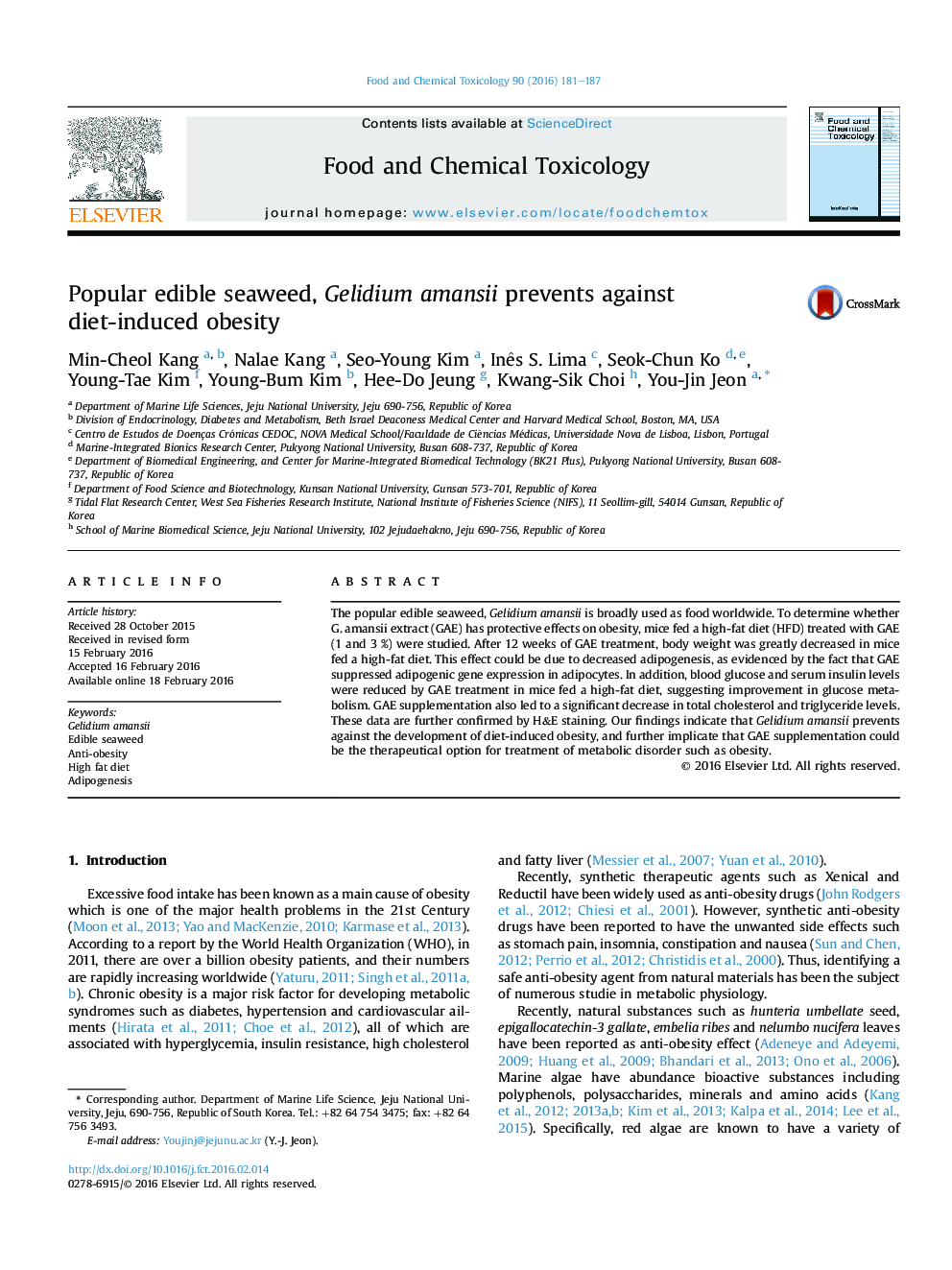| Article ID | Journal | Published Year | Pages | File Type |
|---|---|---|---|---|
| 2584865 | Food and Chemical Toxicology | 2016 | 7 Pages |
•GAE suppressed differentiation of 3T3-L1 adipocyte through downregulation of adipogenesis and lipogenesis .•We study the anti-obesity effect of GA (GAE) in 3T3-L1 cells and in mice fed a high-fat diet.•GAE decreased body weight gain and adipose cell size in HFD-induced obesity in mice.•GAE supplementation also led to a significant decrease in total cholesterol and triglyceride levels.
The popular edible seaweed, Gelidium amansii is broadly used as food worldwide. To determine whether G. amansii extract (GAE) has protective effects on obesity, mice fed a high-fat diet (HFD) treated with GAE (1 and 3 %) were studied. After 12 weeks of GAE treatment, body weight was greatly decreased in mice fed a high-fat diet. This effect could be due to decreased adipogenesis, as evidenced by the fact that GAE suppressed adipogenic gene expression in adipocytes. In addition, blood glucose and serum insulin levels were reduced by GAE treatment in mice fed a high-fat diet, suggesting improvement in glucose metabolism. GAE supplementation also led to a significant decrease in total cholesterol and triglyceride levels. These data are further confirmed by H&E staining. Our findings indicate that Gelidium amansii prevents against the development of diet-induced obesity, and further implicate that GAE supplementation could be the therapeutical option for treatment of metabolic disorder such as obesity.
